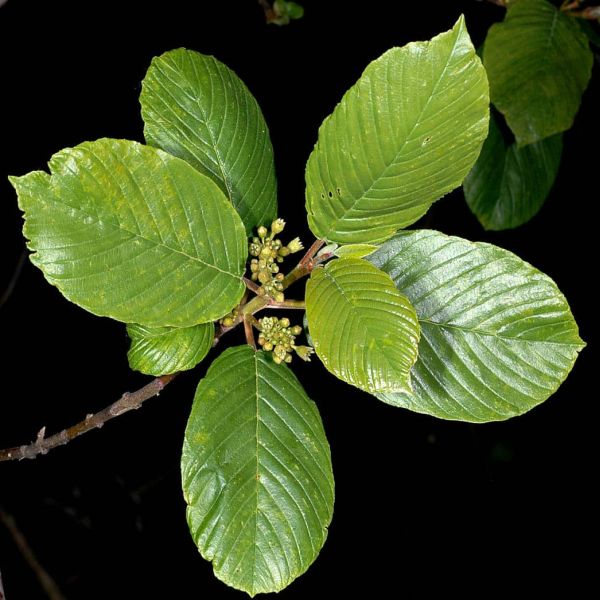Cascara sagrada is produced from the bark of the Rhamnus purshiana tree which is a native of western parts of North America. Other common names for the product are bitter bark, cascarinde, buckthorn, chitem bark, Rhamnus and sacred bark.
As far as we know, it was originally used by the Native Americans of the Pacific Northwest mainly for treating constipation. In 1877, the herb was admitted into the US Pharmacopoeia.
Cascara sagrada is primarily used to treat constipation. The anthraquinones contained in the bark inhibit the absorption of water and electrolytes in the intestines. Because of this, stool volume increases as it absorbs the excess water, which increases pressure within the intestine. This stimulates muscle contractions in the colon (peristalsis), speeding the clearance of the bowel.
As such, cascara sagrada is considered a stimulant laxative alongside other natural laxatives like aloe vera and senna. Unlike these counterparts, the effect of cascara sagrada tends to be gentler, resulting in fewer loose or watery stools.Cascara sagrada also works differently than demulcent laxatives like psyllium, which creates a gel-like substance that helps ease stool from the bowels. Even though it is no longer an FDA-approved laxative, cascara sagrada is still used by people who prefer “natural” laxatives to chemical ones.
Cascara sagrada is intended for short-term use only.If used to treat occasional constipation, it is generally safe and well-tolerated. In some cases, it may cause abdominal pain and cramping (most commonly when used to treat severe constipation).
The long-term use of cascara sagrada is another matter. The concerns stemmed primarily from the evidence that anthraquinones may be harmful if overconsumed.Cascara sagrada can also cause a condition known as melanosis coli, a discoloration of the lining of the colon.
Excessive doses of cascara sagrada can cause bloody diarrhea, vomiting, and the inability to urinate (acute urinary retention). Call your doctor or seek urgent care if you experience any of these symptoms.
Cascara sagrada should never be used for weight loss due to the high risk of side effects and complications.
It should also be avoided in people with diverticular disease, ulcerative colitis, Crohn’s disease, severe hemorrhoids, congestive heart failure, cardiovascular disease, severe anemia, abdominal hernia, gastrointestinal cancer, recent colon surgery, liver disease, kidney disease, or suspected appendicitis.
Due to the lack of safety research, cascara sagrada should never be used by children, pregnant women, or nursing mothers.
Cascara sagrada may interact with a class of drugs called cardiac glycosides used to treat heart failure, including digoxin, digitoxin, and digitonin. It does so by depleting the body of the sodium and potassium it needs to stimulate heart contractions.
Cascara sagrada may also reduce the efficacy of corticosteroids used to treat inflammation. These drugs work by decreasing potassium in the body, and taking cascara sagrada with one can further this effect, leading to severe hypokalemia.
Post time: Aug-06-2020
